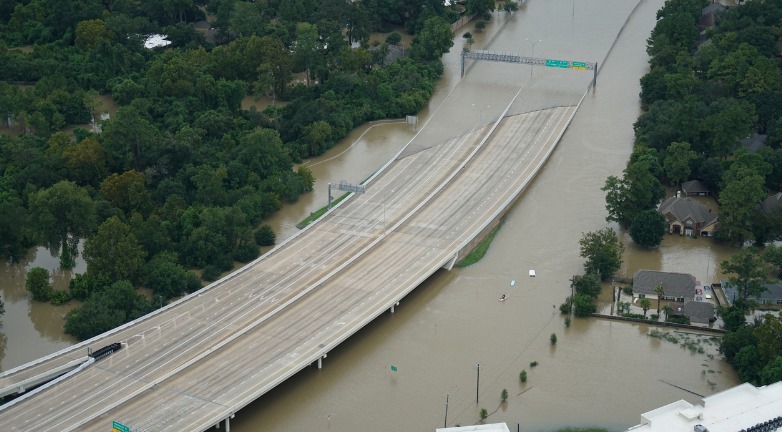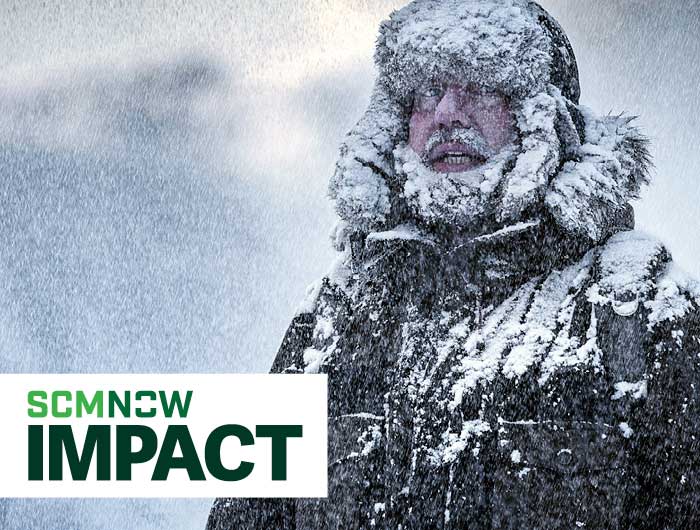As a result of the storm, which is being called the largest tropical rainstorm to hit the continental United States, an estimated 30,000 people have been forced from their homes because of flooding, and more than 725,000 people were placed under a mandatory evacuation order.
In addition, local infrastructure and supply chains took a hit, which sent ripple effects across the nation. Many streets and highways flooded, and at least one bridge has collapsed. Union Pacific, Kansas City Southern and BNSF Railway suspended their rail services in affected areas, according to The Loadstar. Similarly, DHL Express suspended its pickup and delivery operations for the week in the area, and FedEx told customers to expect delays in Texas and Louisiana. Airports and seaports also closed, leaving passengers and cargo stranded until the storm passed.
Because the Gulf Coast region of the United States is a major oil and gas hub, the nation now is facing fuel shortages because of Hurricane Harvey. More than 15 percent of U.S. refinery capacity was shut down because of the storm, and fuel loading and pumping stations in Houston; Pasadena; and Cedar Bayou, Texas, were interrupted, The Wall Street Journal reports. In fact, the nation’s largest refinery, located in Port Arthur, Texas, limited output to 40 percent on Tuesday because of flooding in the plant as well as port and pipeline closures. As a result, GasBuddy.com predicts that the average gasoline price across the nation will soon reach the highest level in two years.
The Gulf Coast region also is home to a large portion of the U.S. petrochemical industry. In fact, this article from The New York Times notes that almost half the exports from Houston are resins, plastics, chemicals and minerals. With many factories interrupted, increasing prices for the raw materials of plastics could raise prices for toys, garbage bags and PVC pipes nationwide.
Although it’s still too early to accurately quantify the damage, Accuweather estimates that storm costs could be as high as $190 billion — including property damage and losses from business disruptions — making Hurricane Harvey one of the costliest natural disasters in U.S. history. Certainly Texas has months and even years of rebuilding ahead.
Aid from all over
In spite of the devastating effects of this disaster, residents, communities and local businesses have shown that they are resilient and have risk management plans in place, and the greater global community has shown that it is poised to help in times of need. U.S. and international news is full of stories about neighbors helping neighbors, nearby communities welcoming storm refugees, and businesses doing what they can to support storm victims.
For example, both Anheuser-Busch and MillerCoors are donating cans of water to storm victims through a distributor and a brewery, respectively, in Texas, according to NBC 5 Chicago. Mockler Beverage, an Anheuser-Busch distributor in Baton Rouge, Louisiana, will work with the American Red Cross to distribute water in Louisiana as well.
As we have done for many years, APICS is partnering with the American Logistics Aid Network (ALAN) to offer supply chain and logistics support to affected communities. ALAN was founded by a collection of professionals and trade associations following Hurricane Katrina and today is supported by hundreds of supply chain businesses that are poised to help when natural disasters occur. The organization’s web portal lists supply chain-related needs from affected communities, and companies with resources and skills can step in to fill those needs. Individuals and businesses also can donate to support the cause at alanaid.org.
ALAN also will be exhibiting at APICS 2017, which will take place October 15-17 in San Antonio. Be sure to stop by the Expo Hall to meet ALAN representatives and learn more about how you can help the organization. To register for the APICS annual conference, visit apics.org/apics2017.



